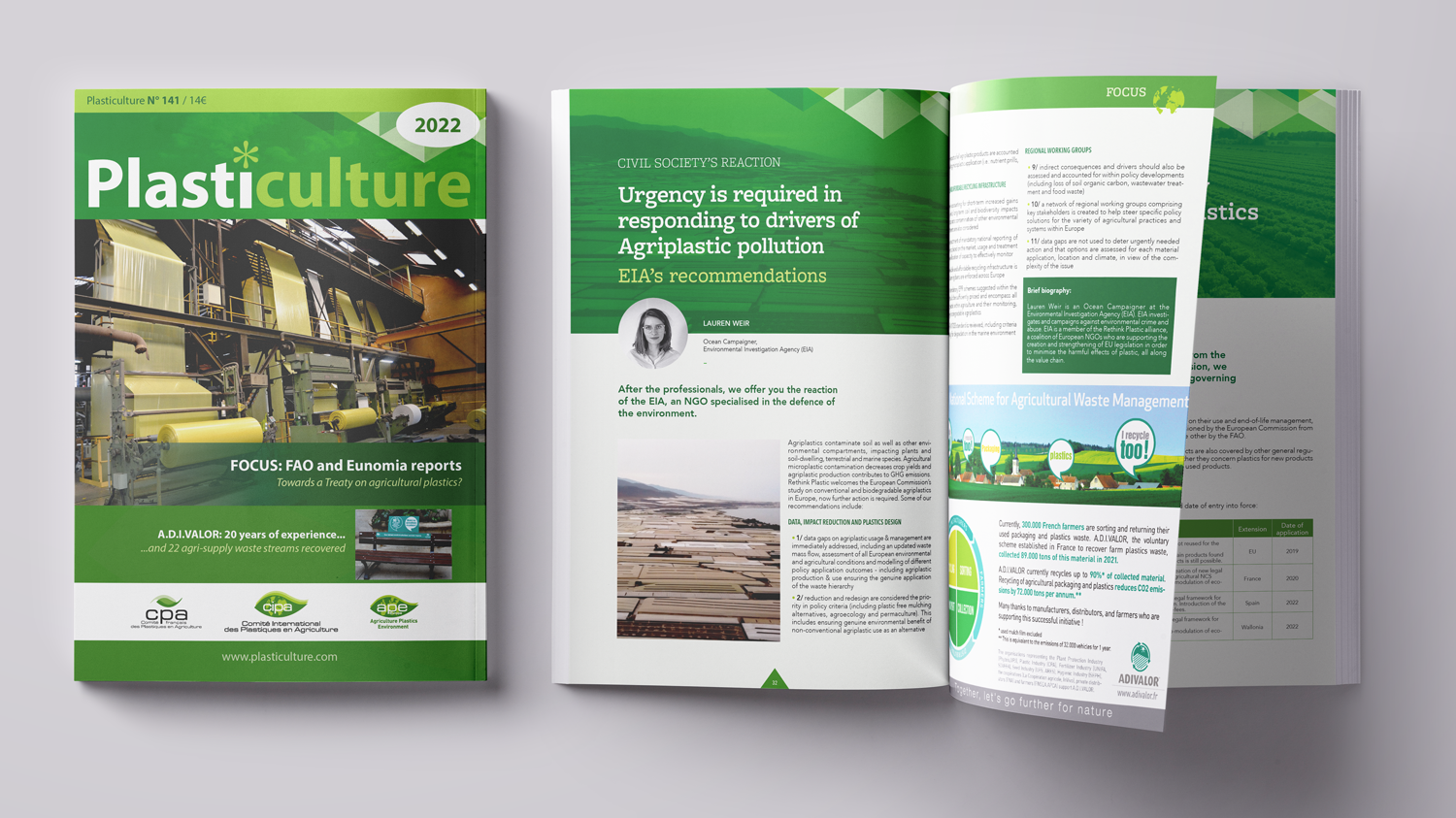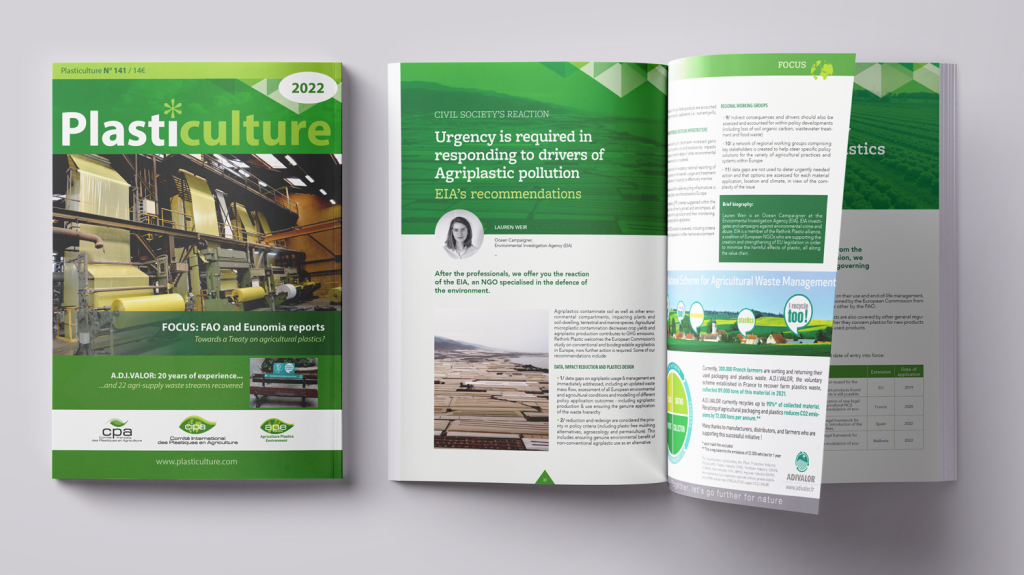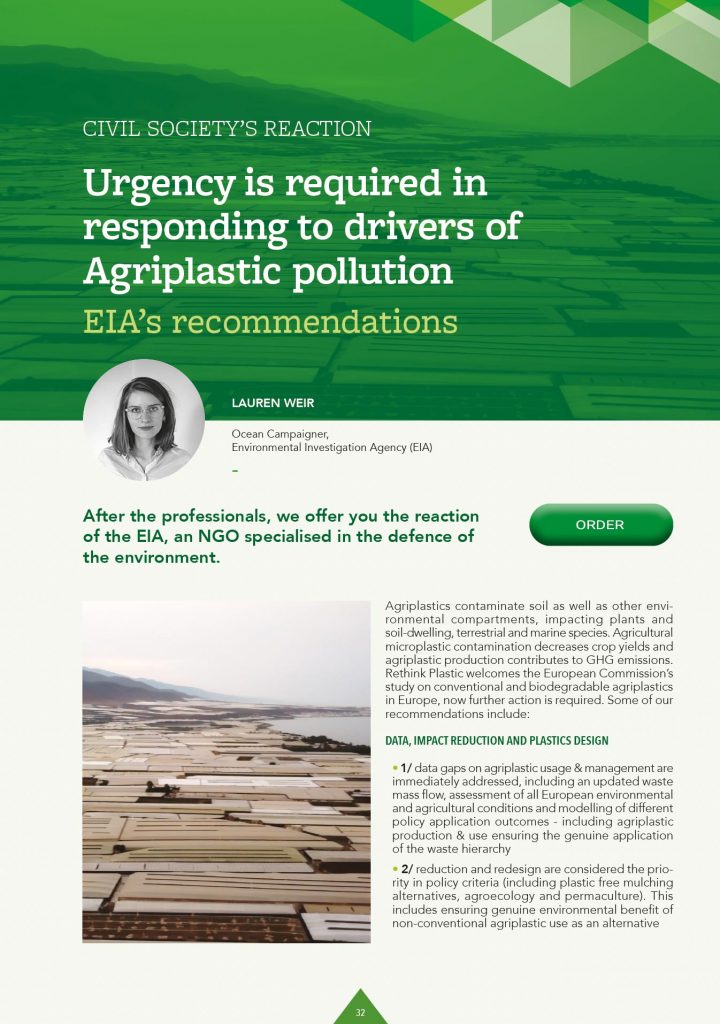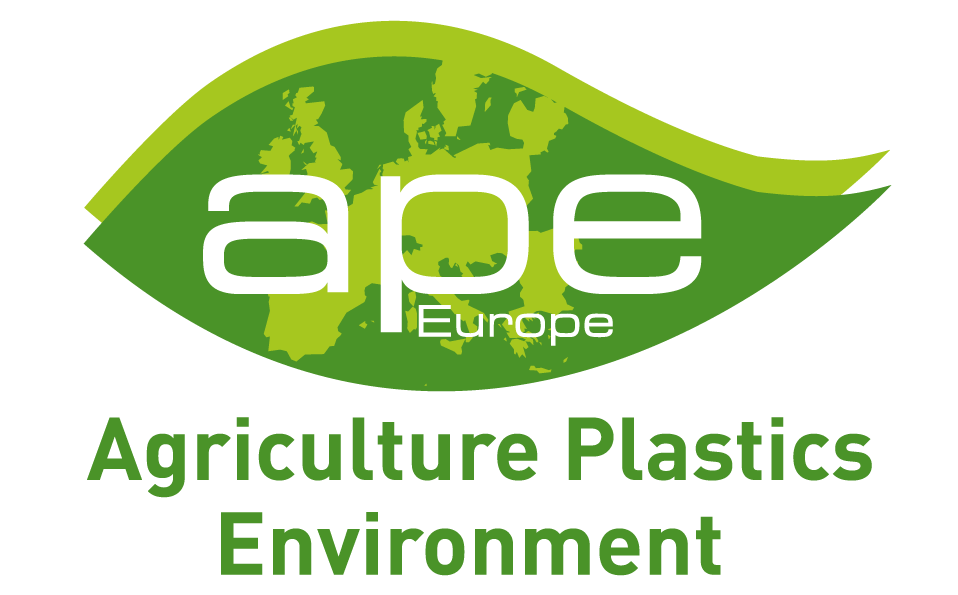To read in the Plasticulture No. 141:
Lauren Weir, a member of a major and well-known NGO, The Environmental Investigation Agency (EIA), speaks out on the economic and technical relevance of agricultural plastics and their full life cycle management.
Read on...
"Agricultural plastics contaminate soils and other environmental compartments, impacting plants and soil-dwelling species on land and in the sea. Agricultural contamination by microplastics reduces crop yields and the production of agri-plastics contributes to greenhouse gas emissions. Rethink Plastic welcomes the European Commission's study on conventional and biodegradable agri-plastics in Europe. However, further action is now needed. Here are some of our recommendations.
Data, impact reduction and design of plastics
1) Data gaps on the use and management of agri-plastics need to be addressed immediately, including an update of the waste mass flow, an assessment of all European environmental and agricultural conditions, and modelling of the different policy implementation outcomes; including the production and use of agri-plastics ensuring the effective implementation of the waste hierarchy.
2) Reduction and design are prioritized in the policy criteria (including plastic-free mulching alternatives, agroecology and permaculture). This includes ensuring a real environmental benefit from the use of non-conventional agri-plastics as an alternative."





Comments are closed